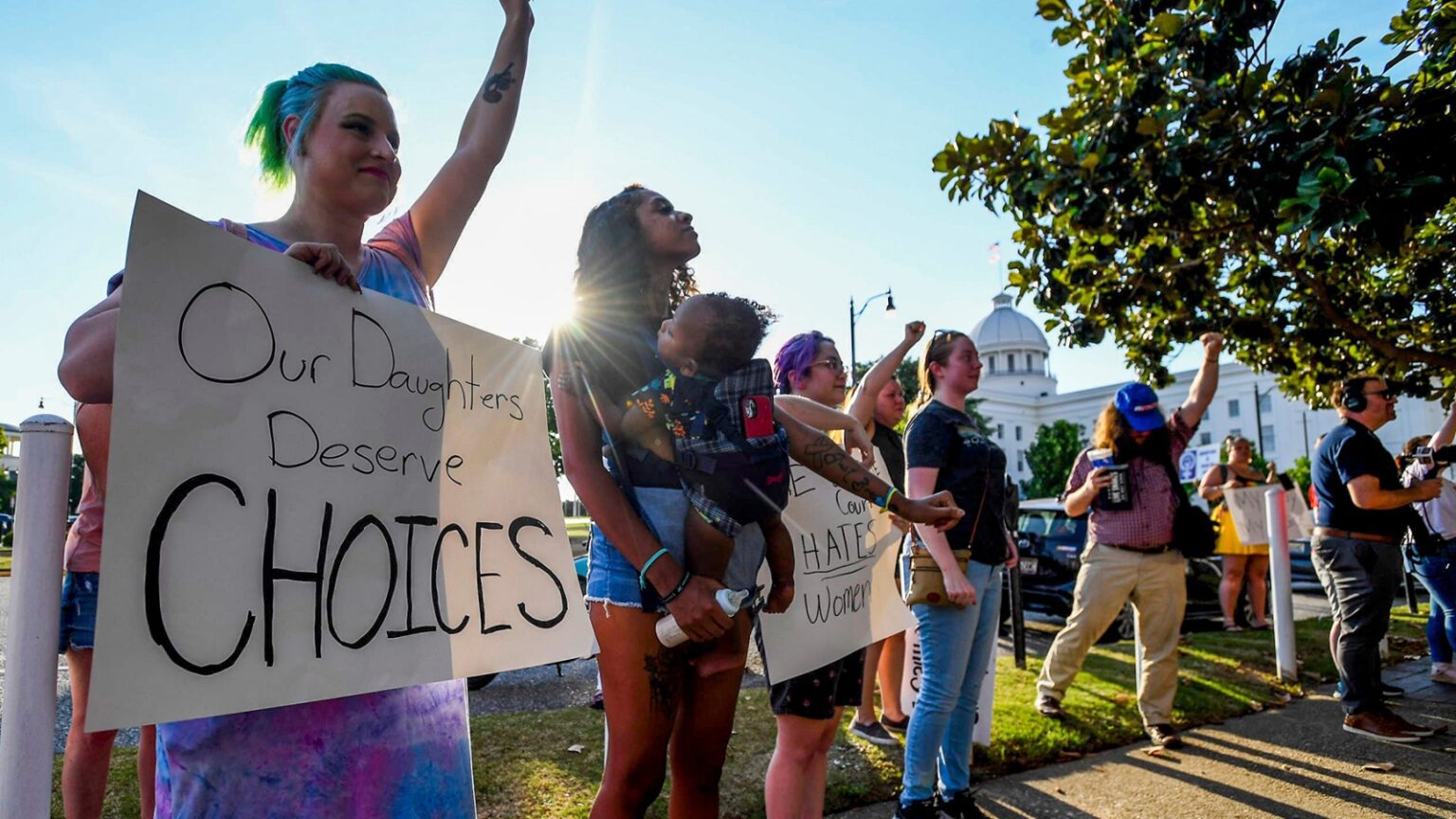Global Courant 2023-05-16 19:01:38
There is virtually no ambiguity in Alabama law: Abortion is banned at any stage of pregnancy, and anyone who performs one can be charged with a felony. But there is one caveat: Under current law, a pregnant person cannot be criminally charged in connection with her own abortion.
A group of Republican lawmakers in the Alabama House of Representatives are angling to change that. A new bill, sponsored by freshman Ernie Yarbrough, would open the door for a pregnant person to be charged with murder if she has an abortion — or even if she has a miscarriage.
Yarbrough’s bill proposes excising from the state’s criminal code “the provision that prohibits the prosecution of homicide or assault following any abortion, and the provision that prohibits the prosecution of homicide or assault against any woman with respect to her own unborn child.”
Instead, the bill seeks to ensure that “prosecutions of homicide or assault where the victim is an unborn child shall be treated the same as prosecutions of homicide or assault of a person born alive.”
Yarbrough — who, ironically, ran on a platform advocating for the freedom to make personal health care decisions — officially introduced HB 454 on Tuesday. He did not respond to a request for comment. Four other Republican representatives — Ben Harrison, Mack Butler, Mark Gidley, Ritchie Whorton — joined him as co-sponsors.
The text of the law specifies that a survivor of rape or domestic violence cannot be charged with murder for terminating a pregnancy, but it makes no exception for non-viable pregnancies. And because a miscarriage is indistinguishable in many cases from a medication abortion, advocates worry that the law would result in not only the widespread criminalization of self-managed abortion — which carries no penalty under current Alabama law — but in the criminalization of pregnancy loss as well.
Robin Marty, director of operations at West Alabama Women’s Center, says it’s easy to imagine how it would play out: “One thing that you need to understand about Alabama is the fact that we have a very, very large uninsured population,” Marty says . Many don’t have a trusted primary care doctor, so the hospital is the first place they will turn when in need of medical attention. “We have people who are going to go into the hospital because they are bleeding. And when they go into this hospital, a doctor, a nurse, somebody in the hospital system says to them, ‘Did you want to be pregnant?’ Or: ‘Did you do anything before this that might have brought it on?’ Which are the kind of invasive questions that we see medical staff ask all the time… The reality is that this is going to be based primarily upon just a feeling that a doctor is going to get.”
Editor’s picks
According to the founder of End Abortion Alabama, the group credited with coming up with the proposed law, it is explicitly intended to end a “loophole” in Alabama law that allows women to self-manage their own abortions. If it sounds punitive, it is — as founder DJ Parten told it Alabama Political Reporter: “Women who intentionally terminate their child should not be granted blanket immunity… (W)omen openly boasting about abortions, using that language, those women are not victims.”
Observers of the Alabama legislature say Yarborough’s bill does not appear to have the level of support it would need to advance this session, but Dana Sussman, acting executive director of the national advocacy group Pregnancy Justice, stresses that law enforcement does not need a new law to criminalize pregnant people in Alabama — they can, and are, doing it already using existing law.
Alabama has a constitutional amendment guaranteeing “personhood” to a fertilized embryo. Earlier this year, Attorney General Steve Marshall declared his office would prosecute women who self-managed their abortions for chemical endangerment of a child using the personhood rationale.
Related
“We have to be very aggressive and push back against these kinds of bills,” Sussman says. “But I also think it’s important to contextualize it in what’s already going on in the state: laws that were never ever even intended to apply to pregnancy are being used to prosecute people.”
Trending
Marshall, whose office later sought to walk his comments back, was articulating a legal strategy that has been repeatedly invoked in parts of Alabama like Etowah County, where more than a dozen women suspected of using marijuana, prescription drugs or other substances have been charged and prosecuted for chemical endangerment of their pregnancies in recent years. Yarbrough’s bill gives the attorney general “concurrent authority” to bring cases, even if local prosecutors decline to. (In Marty’s estimation that provision is “the most terrifying part.”)
In another well-known personhood case in Alabama, a pregnant woman named Marshae Jones was arrested and charged with manslaughter for losing a pregnancy after she was shot in the stomach. The shooter was not charged. “For everyone else this reality sounds like this really far off, ‘There’s no way this could happen’ sort of situation, but we have already had this stuff happen here in so many other cases,” Marty says. Jenice Fountain, executive director of the Yellowhammer Fund, says she doesn’t expect the bill to advance in the Alabama legislature. But even if it doesn’t, the damage is already done. “It will still function in the way that it was designed to — to scare people out of getting abortion care,” Fountain says. “Everybody’s already heard that Alabama might (charge women with murder for having an abortion). That’s going to be the bulk of what people remember.”








